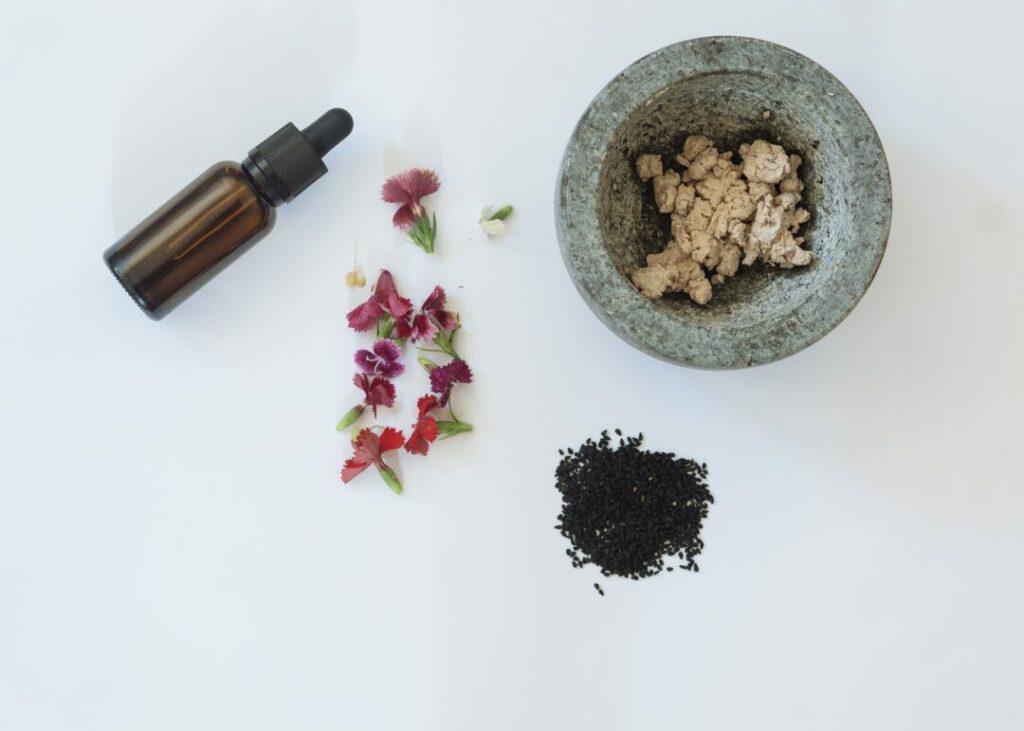

A personalized skincare routine, carefully tailored to your unique skin type and concerns, transforms into a powerful tool for achieving radiant, healthy skin. While the skincare industry offers a plethora of products and ingredients, embarking on this journey can be overwhelming. Identifying your skin type is crucial for selecting the right products and tailoring your skincare routine effectively.
- Oily Skin: Characterized by excess sebum production, oily skin often appears shiny and prone to clogged pores and breakouts.
- Dry Skin: Lacking in moisture, dry skin presents as flaky, dull, and tight. It tends to feel rough and may experience dehydration-related issues.
- Combination Skin: A blend of oily and dry areas, combination skin typically exhibits an oily T-zone (forehead, nose, and chin) and drier cheeks.
- Sensitive Skin: Easily irritated and prone to redness, sensitive skin demands gentle care and products free from harsh ingredients.
Demystifying Skin Types: The Foundation for a Personalized Routine
The first step in crafting your personalized skincare routine lies in understanding your skin type. Each individual possesses a distinct skin type, categorized as oily, dry, combination, or sensitive. Oily skin is characterized by excess sebum production, often resulting in clogged pores and breakouts. Dry skin, on the other hand, lacks moisture, leading to a flaky, dull appearance. Combination skin presents a blend of oily and dry areas, typically with an oily T-zone (forehead, nose, and chin) and drier cheeks. Sensitive skin is prone to irritation and redness, demanding gentle care.
The Cleansing Symphony: Removing Impurities and Preparing for Skincare Magic
Cleansing forms the cornerstone of any skincare routine, gently removing dirt, oil, makeup, and impurities from the skin’s surface. For oily skin, opt for an oil-free, non-Comedogenic cleanser that won’t clog pores. Dry skin benefits from a hydrating cleanser, while sensitive skin requires a fragrance-free, hypoallergenic option.
Exfoliation: Unveiling a Radiant Complexion
Exfoliation plays a pivotal role in removing dead skin cells, promoting cell turnover, and revealing a brighter, smoother complexion. Physical exfoliation utilizes scrubs, while chemical exfoliation employs acids like AHAs or BHAs. Sensitive skin requires a cautious approach to exfoliation, starting with gentle physical exfoliation and avoiding chemical exfoliants unless recommended by a dermatologist.
Addressing Skin Concerns: Tailored Solutions for Unique Needs
Once your skin is cleansed and exfoliated, you can target specific concerns with specialized treatments. Addressing acne, hyperpigmentation, wrinkles, and other skin issues requires careful product selection and consistent application.
- Acne: Over-the-counter or prescription acne treatments can help manage pimples, blackheads, and whiteheads. Seek professional guidance if severe or persistent acne persists.
- Hyperpigmentation: Topical creams, serums, or laser treatments can address dark spots caused by sun exposure, acne, or other factors. Consult a dermatologist for personalized recommendations.
- Wrinkles and Fine Lines: Retinol, hyaluronic acid, and Botox are among the treatments that can diminish the appearance of wrinkles and fine lines. Seek professional advice to determine the most suitable option.
Moisturizing: Hydrating for Enhanced Health and Youthfulness
Moisturizing is essential for all skin types, providing hydration and maintaining a healthy, youthful appearance. Oily skin benefits from a lightweight, oil-free moisturizer, while dry skin thrives with a richer formula. Sensitive skin demands a fragrance-free, hypoallergenic moisturizer.
Sunscreen: The Ultimate Shield against Sun Damage
Sunscreen reigns as the most crucial skincare product, protecting your skin from the sun’s harmful UV rays, which can cause premature aging and skin cancer. Apply a broad-spectrum sunscreen with an SPF of 30 or higher to all exposed skin, every day, even on cloudy days.
Crafting Your Personalized Skincare Routine: A Step-by-Step Guide
Now that you’ve grasped the essential elements of a personalized skincare routine, let’s assemble your unique regimen:
Oily Skin Routine:
- Morning: Cleanse with an oil-free cleanser, exfoliate with a gentle scrub 2-3 times per week, apply a lightweight, oil-free moisturizer, and apply sunscreen with an SPF of 30 or higher.
- Evening: Cleanse with an oil-free cleanser, apply an acne treatment, and apply a lightweight, oil-free moisturizer.
Dry Skin Routine:
- Morning: Cleanse with a hydrating cleanser, apply a hyaluronic acid serum, apply a rich moisturizer, and apply sunscreen with an SPF of 30 or higher.
- Evening: Cleanse with a hydrating cleanser, apply a retinol cream, and apply a rich moisturizer.
Combination Skin Routine:
- Morning: Cleanse with a gentle cleanser, exfoliate with a gentle scrub 2-3 times per week, apply a lightweight moisturizer to dry areas and an oil-free moisturizer to oily areas, and apply sunscreen with an SPF of 30 or higher.
- Evening: Cleanse with a gentle cleanser, apply a targeted treatment to specific concerns (acne, hyperpigmentation, etc.), and apply a moisturizer tailored to your skin’s needs.
Sensitive Skin Routine:
- Morning: Cleanse with a fragrance-free, hypoallergenic cleanser, apply a gentle toner, apply a fragrance-free, hypoallergenic moisturizer, and apply sunscreen with an SPF of 30 or higher.
- Evening: Cleanse with a fragrance-free, hypoallergenic cleanser, apply a targeted treatment to specific concerns (acne, hyperpigmentation, etc.), and apply a fragrance-free, hypoallergenic moisturizer.
Remember, consistency is key when it comes to skincare. Stick to your routine as closely as possible, and you’ll start to see noticeable improvements in your skin’s health and appearance. And if you have any concerns, don’t hesitate to consult with a dermatologist.
Additional Tips for Building a Personalized Skincare Routine
- Listen to your skin. Your skin will tell you what it needs. If a product is causing irritation or other problems, stop using it.
- Be patient. It takes time to see results from a skincare routine. Don’t get discouraged if you don’t see an immediate difference.
- Don’t overdo it. Too many products can overwhelm your skin and lead to irritation.
- Make skincare a part of your self-care routine. Taking care of your skin is a way to show yourself love and appreciation.
With a little effort and dedication, you can create a personalized skincare routine that will help you achieve your skin care goals.
Remember, addressing specific skin concerns takes time and consistency. Consult a dermatologist or skincare professional for in-depth advice and assistance in tailoring your treatment regimen effectively.








